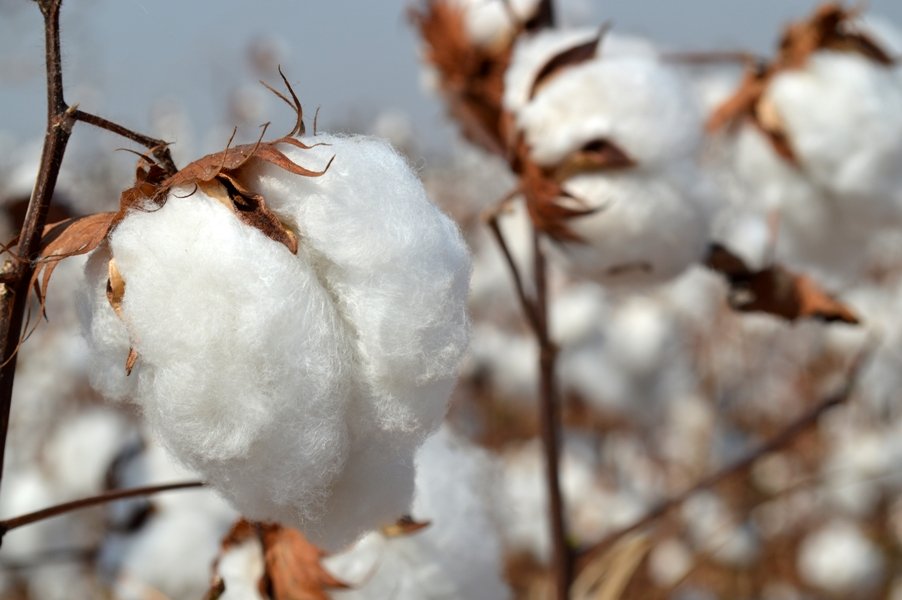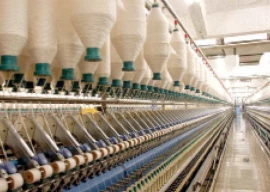
The cotton crop, one of Pakistan’s most important agricultural products, is facing a significant decline in production, raising concerns among farmers, industry leaders, and policymakers. Despite a satisfactory yield of 10.2 million bales in the previous fiscal year, recent data from the Pakistan Cotton Ginners Association shows a 48% decrease in the first 15 days of FY-25, threatening the agrarian economy and the textile industry, which heavily relies on this crop.
Several factors contribute to this downturn. Climate change has altered weather patterns, resulting in irregular rainfall and increased temperatures that negatively affect crop yields. “Unpredictable weather conditions have made it increasingly difficult to maintain healthy cotton crops,” says Dr Zain Shabbir, an agricultural scientist. “Heatwaves and prolonged dry spells are particularly damaging.”
Additionally, pest infestations, especially by the pink bollworm, have devastated cotton fields. Despite efforts to control these pests, many farmers lack access to effective pest management solutions. Muhammad Aslam, a cotton farmer from Multan, explains, “Every year, we battle against pests, but without proper pesticides and knowledge, our efforts often fall short. It’s disheartening to see our hard work go to waste.”
Apart from environmental challenges and crop infestation, economic challenges also play a significant role. Rising costs of inputs such as fertilisers, pesticides, electricity, and quality seeds have made cotton cultivation less profitable. Many farmers, struggling to break even, have switched to other crops.
“Cotton farming has become economically unviable for many small-scale farmers,” explains Fatima Khan, a rural development expert. “The high cost of production coupled with low market prices forces farmers to look for alternative crops that promise better returns.”
The decline in cotton production has far-reaching implications for Pakistan’s economy. The agricultural sector, which employs a significant portion of the population, faces reduced income and increased poverty levels among cotton farmers. This decline also affects the industrial sector, particularly the textile industry, a major contributor to Pakistan’s GDP and export earnings. “Pakistans textile industry relies heavily on locally produced cotton,” says the CEO of a leading textile mill. “A decline in cotton production means increased reliance on imported cotton, which raises production costs and affects our competitiveness in the global market. This situation is unsustainable and could lead to job losses and reduced export revenues.”
Addressing the decline in cotton production requires a multifaceted approach. Improved pest management practices, such as integrated pest management (IPM), can help control infestations more effectively. “Education and training for farmers on IPM techniques are crucial,” says Dr Shabbir. “They need access to the latest research and pest-resistant cotton varieties.”
Investment in agricultural research and development is also essential. Developing drought-resistant and high-yield cotton varieties can mitigate the impacts of climate change. Additionally, the government must provide financial support to farmers, ensuring they have access to affordable inputs and credit facilities. Policymakers need to incentivise cotton cultivation through favourable policies and support programmes. “The government must prioritise cotton in its agricultural policy,” suggests Fatima Khan. “Subsidies on inputs, better pricing mechanisms, and access to modern farming techniques can revive the sector.”
Ensuring sustainable cotton production is vital for the economy and the livelihoods of millions of Pakistanis. The country must adopt modern methods of cultivation and every stakeholder must play their role to initially retarget the 14 million bales production target. Without this concerted effort, the reliance on imports will continue to rise, jeopardising both crop and industrial production in the coming years, she said.











1722244248-0/tlprrt-(1)1722244248-0-270x192.webp)







COMMENTS
Comments are moderated and generally will be posted if they are on-topic and not abusive.
For more information, please see our Comments FAQ